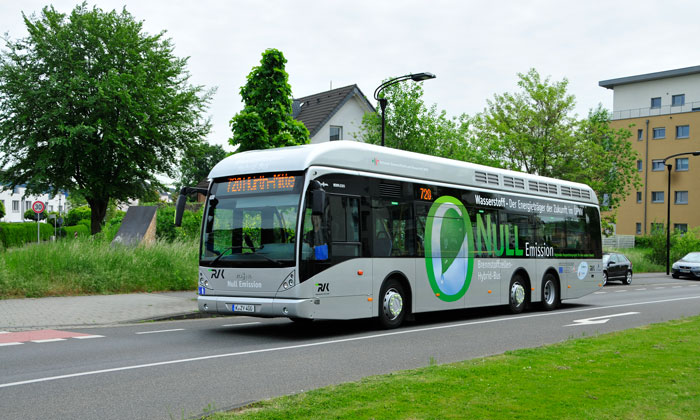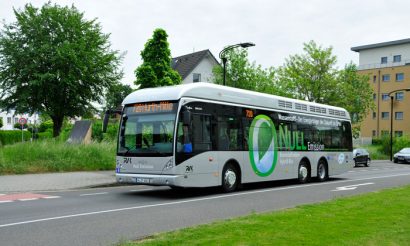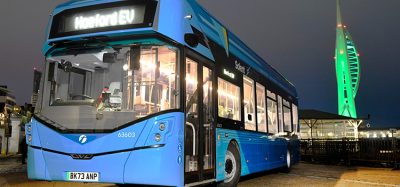New fuel cell buses for Germany and South Tyrol
- Like
- Digg
- Del
- Tumblr
- VKontakte
- Buffer
- Love This
- Odnoklassniki
- Meneame
- Blogger
- Amazon
- Yahoo Mail
- Gmail
- AOL
- Newsvine
- HackerNews
- Evernote
- MySpace
- Mail.ru
- Viadeo
- Line
- Comments
- Yummly
- SMS
- Viber
- Telegram
- Subscribe
- Skype
- Facebook Messenger
- Kakao
- LiveJournal
- Yammer
- Edgar
- Fintel
- Mix
- Instapaper
- Copy Link
Posted: 30 May 2017 | Intelligent Transport | No comments yet
Wuppertal based WSW mobil GmbH has tendered the procurement of 63 fuel cell buses for operation in Germany and South Tyrol.


(Copyright: RVK/Van Hool)
Wuppertal-based WSW mobil GmbH has tendered the procurement of 63 fuel cell buses for operation in Germany and South Tyrol.


(Copyright: RVK/Van Hool)
This is part of the JIVE project; an EU funded project deploying 139 new zero emission fuel cell buses across nine cities. This is the first deployment of this scale in Europe and will become the largest fuel cell bus project in Europe.
Fuel cell buses contribute significantly to air qualities in cities by reducing nitrogen oxide emissions and thanks to ranges of up to 400km (in summer and in winter) they can be operated as flexible as diesel buses.
“The constructive cooperation of the enterprises – also with the aim to make public transport greener – lead to a fast consensus on the technical specifications,” said Andreas Meyer from WSW. “We hope to have found a good basis not only for the actual, but also for further procurement rounds. For industry, this also means to get a guidance line for reaching scale effects which are beneficial for both the industry as well as for the operators.”
Verkehrs-Verbund Mainz-Wiesbaden GmbH, traffiQ Frankfurt, Regionalverkehr Köln GmbH (all in Germany) and SASA SpA-AG in Bolzano (in Italy) – which are going to operate the buses – have coordinated with WSW on this tender.
The transport operators are part of a fuel cell bus procurement cluster which currently consists of 15 companies in Germany, South Tyrol and Trento. Their common target is to switch their complete bus fleets to emission-free vehicles in the future.
The cluster management is supported by FCH JU and is operated by Dr. Frank Koch (EE ENERGY ENGINEERS GmbH, Gelsenkirchen) und Heinrich Klingenberg (hySOLUTIONS GmbH, Hamburg): “More and more cities are confronted with severe administrative measures as the air is polluted too much,” Frank Koch added. “Emission-free buses with batteries and fuel cells will help significantly to improve air quality in the cities. The joint procurement is an important milestone on the preparation of the market for fuel cell buses. We invite all interested bus operators in Germany, Austria and Northern Italy to join our network.”
Further clusters exist in the UK, Benelux, France, Scandinavia and Eastern Europe.
For more information on the JIVE project, subscribe now to receive Intelligent Transport Issue 3 2017 where we will have an article by Sabrine Skiker, EU Policy Manager at Hydrogen Europe, who will summarise the status of the JIVE project and introduce the latest deployment plans and considers the outlook over the coming years.
Related topics
Air Quality, Transport Governance & Policy
Related modes
Bus & Coach
Related cities
Germany
Related organisations
JIVE








